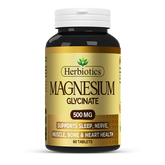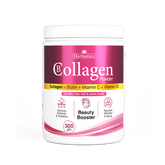Bone Health Tips Everyone Should Follow Before 40
Your bones are strongest throughout your 20s and early 30s. After 40, however, they start to lose density slowly. That's why it's so important to take care of your bones when you're young. Building strong bones before age 40 is the best way to make sure your bones stay healthy for a long time. What you eat, how much you move, and what supplements you take every day all have a big impact on how your bones age. Vitamin D3 K2 and magnesium glycinate are two of the most important nutrients for strong bones. They help calcium get into your bones instead of soft tissues.

1. Strengthen Your Bones Through Exercise
Some of the best things you can do to increase and keep bone mass are weight-bearing and resistance exercises. Your bones get controlled stress when you walk, run, lift weights, or even dance. This makes them stronger. Begin with low-impact activities like brisk walking, yoga, or bodyweight squats, and then add resistance training over time. Regular exercise before age 40 can help keep your bones strong for many years.
2. Get Enough Calcium, But the Right Way
Calcium is important for making bones, but just eating it won't make your bones stronger. Calcium may not get to where it needs to go, like your bones, without the right co-factors. This is where magnesium glycinate and vitamin D3 K2 come in. Vitamin D3 helps your body take up calcium from food. Vitamin K2 then sends the calcium to your bones and teeth instead of your arteries. Magnesium glycinate, on the other hand, helps calcium metabolism and activates Vitamin D3.
Calcium, Vitamin D3 K2, and magnesium glycinate all need to work together to make your bones really strong.
3. The Importance of Vitamin D3 K2
Vitamin D, also known as the "sunshine vitamin," is well-known, but many people don't realise how important Vitamin K2 is. Vitamin D3 helps your intestines absorb more calcium, while vitamin K2 makes sure that the calcium that is absorbed is used correctly to build bones. Calcium can build up in the wrong areas, such arteries or joints, if you don't have K2.
This is why taking Vitamin D3 K2 together works far better than taking Vitamin D alone. Vitamin D3 helps the body absorb calcium better, and Vitamin K2 activates osteocalcin, the protein that holds calcium to bone.
Taking Vitamin D3 K2 on a daily basis helps retain bone mineral density, lowers the incidence of fractures, and keeps calcium from getting into soft tissues, which is good for heart health.
4. Magnesium Glycinate — The Silent Partner in Bone Strength
People often call magnesium the "master mineral" since it is involved in more than 300 metabolic events in the body, such as how bones are made. Vitamin D3 can't work right without enough magnesium. Magnesium glycinate is different from other types of magnesium since it is absorbed quickly and doesn't upset the stomach.
Taking magnesium glycinate every day makes sure that Vitamin D3 functions well, calcium is used effectively, and bones stay strong. It also helps muscles relax, keeps cramps from happening, and helps you sleep better, all of which are good for your bones in some way.
Taking magnesium glycinate with Vitamin D3 K2 makes sure you get all the bone-strengthening advantages of both minerals.
5. Eat a Bone-Friendly Diet
You should eat meals that are high in calcium, magnesium, vitamin K2, and protein. Dairy products, leafy greens, nuts, seeds, eggs, and fatty fish are all good sources. Too much caffeine, sugary drinks, and processed foods might make it harder for your body to absorb calcium. Adding whole grains, avocados, and legumes to your diet will help you get more magnesium naturally, in addition to the magnesium glycinate supplement.
Taking Vitamin D3 K2 and magnesium glycinate supplements along with a healthy diet is one of the best methods to keep your bones strong before you turn 40.
6. Get Enough Sunlight
When you are in the sun, your body makes Vitamin D3 on its own. Depending on your skin type and where you live, you should try to spend 10 to 20 minutes outside a few times a week. But a lot of people still don't get enough vitamin D because they spend too much time indoors or because of the weather. That's why it's crucial to take a Vitamin D3 K2 supplement. It makes sure you get enough vitamin D even if you don't get a lot of sun.
7. Avoid Bone-Depleting Habits
Your bones can get weaker if you smoke, drink too much alcohol, don't exercise, or live a sedentary life. These habits raise oxidative stress, throw off the balance of calcium, and make minerals that help grow bones, like Vitamin D3 K2 and magnesium glycinate, less effective. Stopping smoking, drinking less alcohol, and keeping active can all make a big difference in bone density.
8. Manage Stress and Sleep Well
Stress that lasts for a long time elevates cortisol levels, which can cause bones to break down over time. Bad sleep also throws off hormone balance and calcium control. Magnesium, specifically magnesium glycinate, can aid your bones by calming your nervous system, improving your sleep, and lowering your stress levels.
9. Monitor Your Nutrient Levels
Before you turn 40, you should receive frequent blood tests to check your magnesium and vitamin D levels. A lot of folks don't know they're deficient. Keeping enough Vitamin D3 K2 and magnesium glycinate in your body can help it keep rebuilding and maintaining bone tissue.
Choose Herbiotics Vitamin D3 K2 for Stronger Bones
Herbiotics Vitamin D3 K2 is a great choice if you want a supplement that you can trust and that works well. This supplement has the strong effects of Vitamin D3 K2, which can help your body absorb calcium better, make your bones denser, and improve the health of your whole skeleton. Herbiotics makes sure that the potency is just right, which helps your body use calcium well and supports your immune and cardiovascular systems.
Pair Herbiotics Vitamin D3 K2 with a daily dose of magnesium glycinate for even greater benefits. This will make sure that all the important nutrients work together to maintain your bones strong, flexible, and healthy.
FAQs
Q1: What makes Vitamin D3 K2 superior than just Vitamin D?
Vitamin D3 K2 works better because vitamin D3 helps the body absorb calcium, and vitamin K2 moves the calcium into bones. Calcium may build up in arteries instead of making bones stronger if you don't get enough K2.
Q2: Can I take magnesium glycinate and vitamin D3 K2 at the same time?
Yes! Magnesium glycinate actually helps your body turn on Vitamin D3. Taking them together makes sure that both nutrients work together to improve calcium metabolism and bone health.
Q3: How long does it take to notice results from magnesium glycinate, vitamin D3, and K2?
Most people start to feel better after a few weeks, with more energy, stronger muscles, and better overall health. But it takes months for increases in bone density to be seen. Taking Vitamin D3 K2 and magnesium glycinate on a regular basis, together with working out and eating well, will provide you long-term results.
Conclusion
Building strong bones starts early in childhood and continues with healthy practices. Before you turn 40, you should focus on weight-bearing exercise, eating a healthy diet, and taking the right supplements. Calcium, Vitamin D3 K2, and magnesium glycinate are the three most important things for keeping your bones healthy.
You can keep your bones healthy, stop them from losing density too soon, and stay strong and mobile for the rest of your life if you take care of them and choose trustworthy supplements like Herbiotics Vitamin D3 K2. The sooner you start, the stronger you'll be for years to come.





